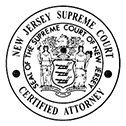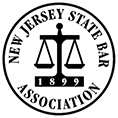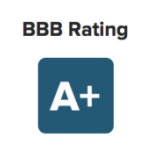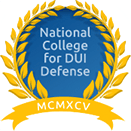Under Investigation or Arrested For Submitting A Fraudulent Insurance Claim or Application?
The criminal offense of insurance fraud is laid out in a rather complex law located at N.J.S.A. 2C:21-4.6 of the New Jersey Criminal Code. This statute makes it a crime to attempt or engage in conduct that is intended to fraudulently secure insurance coverage or payment of an insurance claim. It applies to all insurance transactions including, but not limited to, those involving medical/health, automobile/car, homeowners, workers’ compensation, disability, life, or unemployment coverage. When an individual lies, misrepresents, or deceives an insurer in Cranford, Elizabeth, Union, Linden, Westfield or another municipality, they are exposed to prosecution by either the Office of the Insurance Fraud Prosecutor or the Union County Prosecutor’s Office for violation of 2C:21-4.6. If you are under investigation for insurance fraud or have already been arrested, you need legal to consult an experienced lawyer immediately. A fraudulent car insurance, health insurance, disability insurance, etc., can easily result in a state prison term so it is clearly in the best interest of anyone who has been accused of misrepresentation to obtain coverage or payment of a claim to hire an attorney. Our criminal firm is one of the largest in the state and includes several former prosecutors and a team of criminal defense attorneys with over 100 years of combined experience. Give us a call at 908-272-1700 for a free consultation over the telephone or in our Union NJ Office.
What Is Considered Insurance Fraud In New Jersey?
An individual can expose himself to an fraud offense in one of four (4) ways in NJ. First, he can be charged with this offense if he fraudulently applies or submits a claim for payment, reimbursement or other benefit pursuant to an insurance policy or from an insurance company or the Unsatisfied Claim and Judgment Fund of New Jersey. The second way he can be charged under N.J.S.A. 2C:21-4.6 is by knowingly omitting or misrepresenting a fact to an insurance company in an application for coverage or to renew an insurance policy. Third, the charge can result where there is an intentional misrepresentation to obtain a payment in accordance with an insurance premium finance transaction. The fourth form of NJ insurance fraud applies where the misstatement is made in an affidavit, certification, record, or other document to secure a premium finance transaction. The following are definitions of some of the important terms under the NJ Insurance Fraud Law.
- “Insurance Company” includes any person, company, corporation, unincorporated association, partnership, professional corporation, agency of government and any other entity authorized or permitted to do business in New Jersey which indemnifies another against loss, damage, risk or liability arising from a contingent or unknown event. These include entities subject to regulation by the State, or incorporated or organized under the laws of any other state of the United State or of any foreign nation or of any province or territory.
- “Insurance Policy” is defined under the statute as the instrument, in writing electronically or in any other form, in which are set forth the terms of any certificate of insurance, binder of coverage, contract of insurance or contract of re-insurance, issued by an insurance company, including, but not limited to, a State-assigned risk plan, plan of indemnity protection provided by or on behalf of a joint insurance fund or benefit plan, motor club service, or guaranty bond, surety bond, cash bond or any other alternative to insurance authorized or permitted by the State of New Jersey.
- “Insurance transaction” falling under this law means a transaction by, between, or among (1) an insurance company, and (2) an insured, claimant, applicant for insurance, public adjuster, insurance professional, practitioner, attorney, or any person who acts on behalf of any of the foregoing for the purpose of obtaining insurance or reinsurance, calculating insurance premiums, submitting a claim, negotiating or adjusting a claim, or otherwise obtaining insurance, self insurance, or reinsurance, or obtaining the benefits or annuities.
- “Premium Finance Transaction” means a transaction involving or related to insurance premium financing which is subject to the Insurance Premium Finance Transaction Company Act.
For a violation to occur in any of the four (4) ways previously discussed, there must be a false, fictitious, fraudulent, or misleading statement or omission of fact. The misstatement or misrepresentation must have been material to the insurance company’s decision to insure or pay a claim. It must have been the result of something said, written or done, caused to be done, or omitted by the accused. And, finally, the actions of the accused must have been knowing in order for an insurance fraud to be committed.
Degree Of Crime
Insurance fraud is generally a third degree crime. This charge is, however, elevated to a second degree crime if the State can show that the defendant engaged in five or more acts of insurance fraud and if the aggregate value of property, services, or other benefit wrongly obtained or sought to be obtained is at least $1,000.
Jail & Fines If Convicted Of Insurance Fraud
An individual who is convicted of third degree insurance fraud faces state prison for between 3 and 5 years and a fine of up to $15,000. Second degree insurance fraud carries with it the possibility of 5 to 10 years in prison as well as a fine of up to $150,000. Whether it is a third degree or second degree offense, insurance fraud is a serious crime and one that you should not attempt to face alone.
Insurance Fraud Defense Attorneys in Union County NJ
Here at the Law Offices of Jonathan F. Marshall, we have over 100 years of collective experience defending against criminal charges in Union County, including insurance fraud. An attorney at our firm has the skills to protect your interests whether the case was filed in Summit, Fanwood, Rahway, Scotch Plains, Hillside or another area town. Attorneys are available around the clock at 908-272-1700 to assist you in a free consultation. Call us for the assistance from a lawyer that you need.












